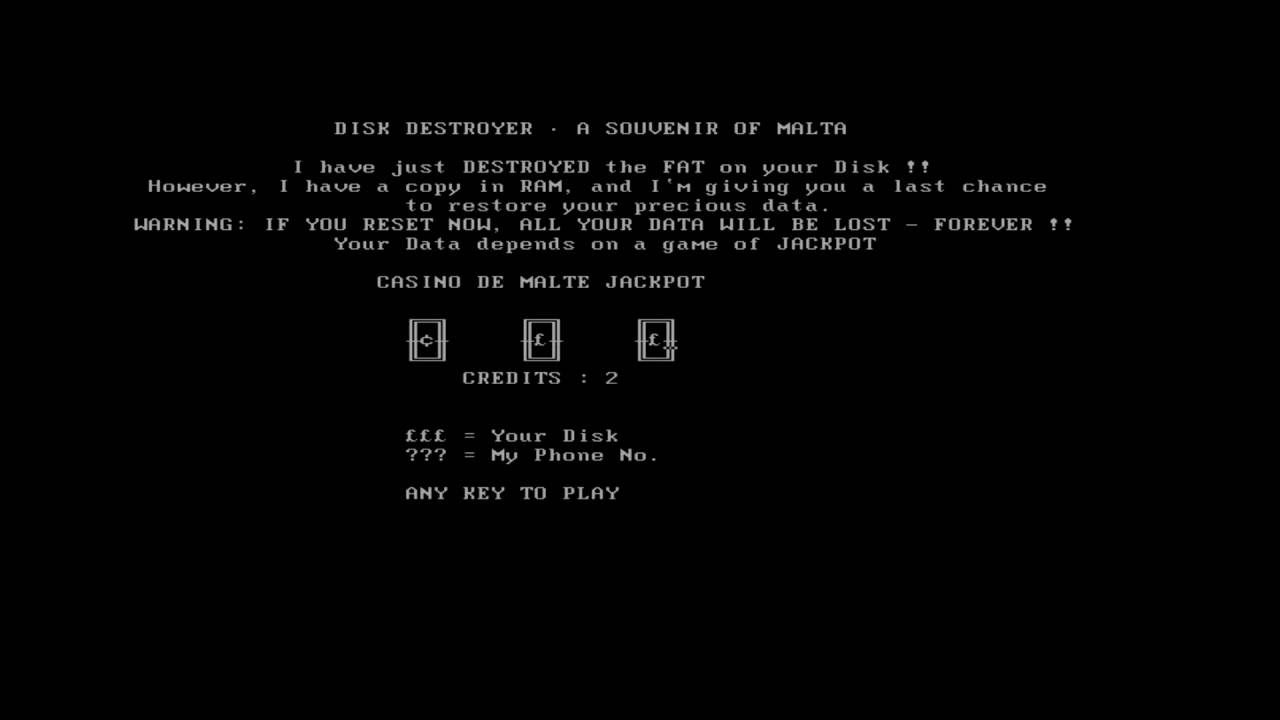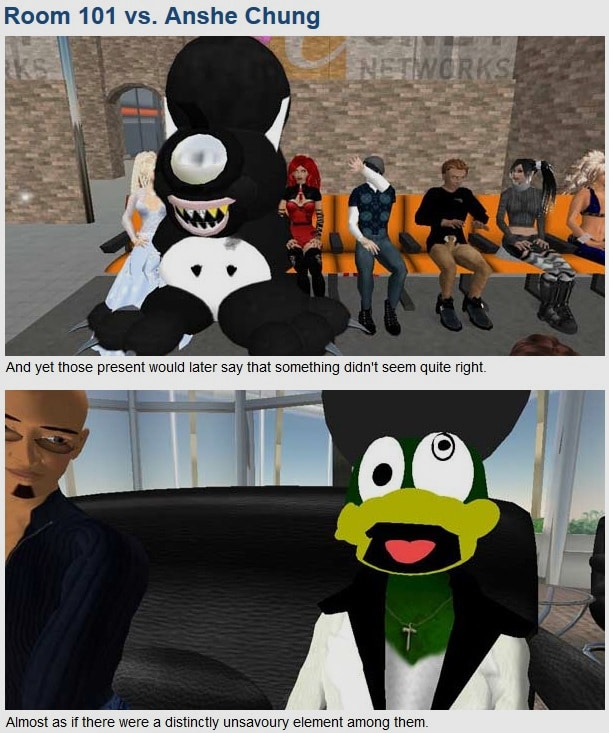You're in the zombie nightmare of DayZ and about to be eaten by one of the charging undead when suddenly a helicopter appears. Its pilots – and simply owning a helicopter lets you know they're big shots – gun down your pursuer and offer you a lift. What you don't know is that instead of flying you to safety, your destination is the tiny, featureless Schadenfreude Island some 15km off the main coast of Chernarus. The only reason they've saved you is for the amusement of knowing you're condemned to stand there until you waste away, and that they were smart enough to fool you.
Griefing: it comes in many forms, but any online game with a population of more than five will see its share. Sometimes it's purely for fun, sometimes it's to make a point, and sometimes it's even to make a profit. In the online world of Second Life, for instance, where players purchase land with real money, griefers have been known to snap up surrounding plots and fill them with content such as giant walls to extort landowners into buying back their view. Even when the reason is just "because I can," though, there's often more to it.
At heart, griefing is about rules – the rules of the game that griefers see themselves as being smart enough to subvert, or the social rules they're prepared to break in the name of getting their own kicks. In many cases, simply knowing that someone somewhere is screaming is enough.
There are parallels across other spheres of technology, too. For instance, one of the earliest celebrity viruses, Casino, took the form of a slot machine that forced you to play a game for the fate of your hard drive's file allocation table. Get three £ symbols and you'd get your data back, just as the virus promised. Get three ? instead and supposedly you'd get the author's phone number, although what you really got was the message: "No frickin' chance, and I'm punishing you for trying to trace me down!" before the virus zapped your data. The general presentation and text is classic griefer psychology, creating invisible rules to allow him to clamber to the moral high ground, blaming the victims, and dismissing any harm as just punishment.

While their goals were different, some early game developers would use their power to punish what they saw as player transgression, too, usually piracy, but occasionally cheating as well. The original EarthBound, for instance, had code that tried to detect whether it was a pirated copy. It would then let pirate players get to the final boss, before crashing itself and deleting all their saves.
The first SimCity would let you keep playing if you failed a copy-protection check, but kept inflicting disasters to make it impossible to accomplish anything. Serious Sam 3 on PC punished pirates not with an error message, but an immortal giant pink scorpion that relentlessly pursued them through the world.
Originally such tricks served little purpose bar providing a little bit of quiet satisfaction for the programmer. As time went on, they became a way for a company to immediately know it was dealing with a pirate: Calling up a hint line about a missing item, such as the handkerchief in Lure Of The Temptress, was an admission of guilt. It would be there if you hadn't cracked the game.
The practice continues today: Batman: Arkham Asylum has a room full of poisoned gas where your cape suddenly won't work if you cracked the game. "It's not a bug in the game's code, it's a bug in your moral code," responded Eidos's admin when the first person complained about it.
While griefing methods vary by genre and game, players who grief can be put into three rough camps. The first are opportunists, who simply set out to annoy people. They shoot their own teammates, they kill steal, they fill the chat window with the word LOL, they camp, and they smash people's stuff. Think wienerroach, with the emphasis on the first syllable. They're the kind of people that kick and ban buttons were invented for.
The second tier use more advanced tricks, but don't actually create them. They typically have some skill or experience with the game, whether it's having a character at a high enough level to mess with people, or simply a higher understanding of the rules than the newer players who typically become their victims. They're the ones who'll do things like abuse their character's teleportation power to beam someone into a fire pit, or go up to a boss in an MMOG and "kite" them into a public area.
Sometimes, they'll even go outside of a game to get their kicks. Swatting, for example, involves calling the police and trying to get a SWAT team (or the local equivalent) to burst in on another player by pretending that they're holding hostages. It has spread beyond gaming, too, with Justin Bieber recently falling victim to this kind of prank.
Ventrilo/TeamSpeak/[insert audio communication platform] harassment is in a tier of its own, and ranges from crude and abusive to funny and high end hilarity.
The top tier of griefers are the celebrities who either find and exploit issues in the first place, or simply become infamous outside of their community. The DayZ helicopter gang are the face of that scam thanks to a video of them pulling it off hitting news sites such as Kotaku, though they could just have copied someone else's idea.
Team Roomba's videos of griefing (videos follow later in article) in Team Fortress 2, including creating teleporters to send players into the line of sentry gun fire and glitching the spawn room door to lock both teams in the starting area, have clocked up over 5 million views. Going back to the days of EverQuest, Fansy The Famous Bard would simply draw trains of enemies into players, but obnoxiously enough to become a known name.
The effect has a lot in common with the popularity of con artist archetypes. While we don't necessarily approve of what's being done, we can still appreciate the style and ingenuity of it as viewers. A successful celebrity grief is as much about showmanship as the actual scam/attack.
In the DayZ 'copter example which we keep coming back to, you know what's going to happen to the unlucky victim, with the friendly banter adding a level of "they're not really going to go through with it" tension to things. Team Roomba's videos work as entertainment because they don't simply show lots of people dying, but have voice chat recordings of the team's frustration, and the griefers sometimes raise the stakes by turning the whole thing into a quiz show. It's so audacious and yet ultimately so harmless that you can't help but find it funny.
One of the best places to find griefer stories is a Something Awful thread called I Killed British (533 pages long at the time of writing). It's a reference to a moment in the Ultima Online beta when a player managed to murder the supposedly invincible king during a public address. This wasn't really an example of griefing, since it only worked because the developers had forgotten to put on the invincibility flag, but the player was later banned for other acts.
General it may be, but it's a good way of seeing how regular people who grief see things, and where they draw the line. One person early on happily admits to ruining other players' nights by drawing armies of monsters to them, but refuses to abuse another system to raid their corpse. More often than not, there's little mention of victims' reactions beyond "they rage quit," with the focus primarily on the mechanics of each scam and how the griefer was smart enough to bend the rules in their favor. Where victims are brought up, it's typically to be dismissed for their inexperience – being seen as weaker, they're considered fair game – or mocked for taking things too seriously.
This isn't a universal rule, however, and different griefers have their own ideas of what they want to get out of it. The infamous group myg0t described itself as "the harassment authority" and went all-out for reactions, with any hack or cheat deemed fine if it gets victims shrieking into their microphones. In the world of Eve Online, where in-game currency can be used to pay for subscriptions, grifting is big business, with one record-setting Ponzi scheme pulling in enough to buy almost 3,000 months' worth of the game.
Griefing can have a more political side, however, and isn't always against random targets. In 2006, Second Life saw one of the most infamous examples when virtual real-estate tycoon Anshe Chung (real name Ailin Graef) was chased out of an interview event on the service by a group called Room 101.

In the real world, they might have jeered or thrown tomatoes. Here, they generated magic self-replicating penises, chased the event when it moved to a new location, and ultimately crashed the server with their attacks.
One of the most audacious moments in griefing history happened in Eve Online. A group of players spent months preparing what became known as "Burn Jita," a concerted attempt to destroy the game's economy by blowing up its main trade hub with an army of disposable ships.
What made it particularly interesting was that it didn't technically count as griefing, with developers CCP not only embracing it ("It's going to be fricking brilliant," in the words of the game's senior producer), but also reinforcing the servers to make sure the game – not the economy, but the servers – wouldn't buckle under the load. This is especially notable as the whole event is said to stem from one of its organizers' annoyance at being given a temporary ban for mocking a suicidal player and encouraging other players to harass him. Even the land of do as you please has some limits when there's more than just money at stake.
The wide range of griefing types makes it impossible to pin down a specific root cause for all this, unless you count the fact that people can be jerks. You could, for example, reach for psychology guides such as the Diagnostic And Statistical Manual Of Mental Disorders fourth edition (DSM-IV). This describes antisocial personality disorder, which is the official version of what's often referred to as psychopathic behavior, with seemingly appropriate phrases such as "failure to conform to social norms with respect for lawful behaviors," "use of aliases or conning others for personal profit" and "lack of remorse." In some cases, that's undoubtedly true. There are sociopaths and psychopaths out there, and no doubt many of them have XBLA and PSN accounts.
Even ignoring the fact that trying to diagnose someone without the appropriate expertise is a dreadful idea, though, this opens up an obvious problem: games aren't real. When someone on YouTube gets in a flap because someone shot their space marine, it's more than easy to laugh at the overreaction. As online pranks go, the average non-targeted grief is as mild as things get. There's usually no direct loss for the victim, little to no personal humiliation, and unlike being trapped with a bad boss or playground bully, no shortage of ways to be somewhere else. There are exceptions, of course, but all this makes it easy for griefers to just do their thing for the lulz.
There are two sides to the story, however. New players are the most common victims of griefing, and it doesn't take much to spoil a game. Griefs involving betrayal of trust can cut especially deep and ruin any desire to keep playing. In games like Eve Online or DayZ, griefers' actions can be defended to some extent. After all, these worlds are cynical, harsh, and unapologetically brutal. But in a regular MMOG, the griefer's 30 seconds of amusement at stranding a newbie somewhere horrible could well cost that player the will to play a whole game. Not that the griefers care, of course. Not when there's always fresh meat just over the next virtual hill.
 CRIME Shirt $21.68 |
 Nothing Ever Happens Shirt $21.68 |
 CRIME Shirt $21.68 |

I miss courier feeding in dota 2